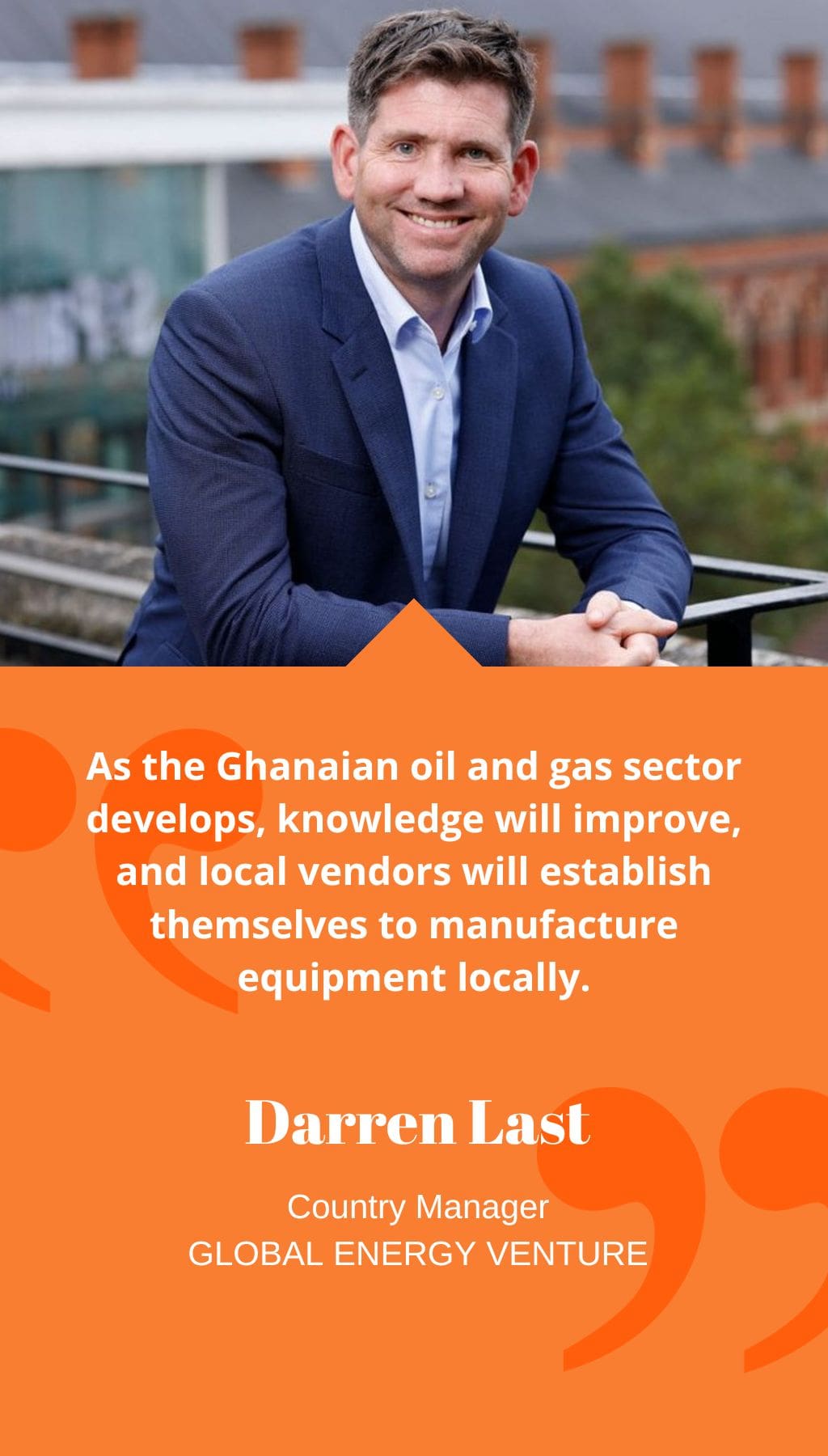
- Ghana | 13 September 2015

Could you tell us about Global Energy Ventures’ overall strategy and the significance of Ghana in it?
Global Energy Ventures established a presence in Ghana back in 2008, making it the first fabrication and inspection company in the country. Currently, the company has 60 employees in Ghana and an additional 60 employees in Abidjan. Ghana is becoming increasingly important for West Africa, so it has been a major focus for Global Energy Ventures to develop local content and establish a structure within the country from the very beginning. Global Energy Ventures supports Transocean and ENI rigs all over the world. In 2008, the company was awarded a three-year contract with Tullow that, along with other international companies, has ensured that the standards in Ghana match worldwide requirements. Ghana accounts for 40% of the company’s revenue, while 60% of revenue is generated in Abidjan, where operations are more fabrication oriented, and there is less competition due to the immaturity of the market. The company is striving to increase its fabrication capacity in Ghana, although the market is extremely competitive. Global Energy Ventures is currently evaluating potential opportunities in Togo, Tanzania, and Namibia to enable it to increase its presence in Africa.
Can you provide us with more information about Global Energy Ventures’ working relationship with Transocean?
Global Energy Ventures provides a range of services to Transocean, including NVT, inspection, fabrication, and full lifting surveys, which can take up to four weeks for three employees to complete. In addition, Global Energy Ventures employees carry out OCTG inspections, thread inspections, and Bottom Hole Assembly, which involves drilling tools.
What unique challenges has Global Energy Ventures had to overcome while operating in Ghana?
Imported equipment can cause logistical challenges due to the lack of knowledge in Ghana about oil and gas equipment. Therefore, it is crucial for Global Energy Ventures to forward plan and invest more resources into spare equipment and tools. As the Ghanaian oil and gas sector develops, knowledge will improve, and local vendors will establish themselves to manufacture equipment locally.
Has the gap between exploration and Phase Two of production affected Global Energy Ventures’ earning reports?
It is hard to measure to what extent Global Energy Ventures has been affected because different clients require surveys and inspections at different times, meaning that the company has not experienced a downturn in business.
How has the rapid development of the oil and gas industry affected Global Energy Ventures’ business?
It has not been challenging for the company to source the necessary equipment. However, it is difficult to find the suitable skills and labor required by the company. Individuals require a minimum of seven years of training to qualify to become an inspector due to the lack of resources and training capabilities in Ghana. As a result, Global Energy Ventures is investing in the training of Ghanaian employees and selects six university students every twelve months to embark on its Graduate Program, which provides them with the opportunity for a position within the company. It is essential to empower local communities to participate in the development of the oil industry, and Global Energy Ventures has set a target to employ 90% local content within the next two years.
What business growth has Global Energy Ventures experienced in Ghana over the last few years?
The company’s revenue has increased by 120% in the last eighteen months. Global Energy Ventures plans to acquire Sling Press, which will enable it to manufacture its own slings. Projections for Q2 2016 are to increase the company’s revenue to $750,000 per month.














